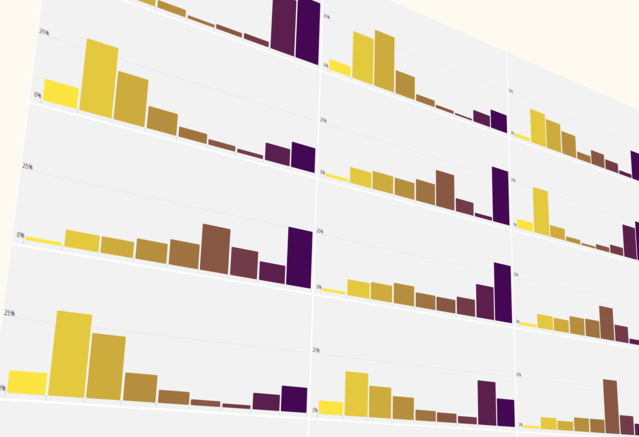How long do foreigners stay in Switzerland?
Switzerland has one of the highest proportions of foreign residents in the world. Around 40% of them were born in Switzerland or have lived in the country for over 20 years.
One-third of Swiss residents are of foreign origin. This figure includes people who immigrated to Switzerland, or whose parents moved here.
A closer look at permanent residents’ nationalities shows that around one quarter of the population is non-Swiss. This is one of the highest proportions in the world. More than a third of these foreign residents were born in Switzerland or have lived here for more than two decades. The graphic below breaks down the length of residence in Switzerland by nationality.
Over 60% of foreign residents from Italy, Turkey and the former Yugoslav states of Croatia, Bosnia and Herzegovina, Serbia, Macedonia and Kosovo were born in Switzerland or moved here over 20 years ago.
Meanwhile, Germans, French, English and Polish residents stay in Switzerland for much shorter periods; few are born in Switzerland.
The high percentage of foreign residents in Switzerland is partly due to the difficulty in obtaining a Swiss passport. Although the Swiss voted in favour of a facilitated naturalisation process for immigrants, making it easier for the grandchildren of immigrants to gain nationality, the Swiss process is still one of the most restrictive in Europe. Unlike traditional countries of immigration, such as the United States or Australia, a child born in Switzerland does not automatically obtain Swiss nationality.
The citizenship rate, which compares the number of people acquiring Swiss nationality against the number of permanent foreign residents, is lower than the European average. In 2015, it stood at 2.1% in Switzerland.
This can also be explained by the fact that over 80% of non-Swiss residents come from Europe. A large share of migrants from European Union member states are highly qualified workers and only stay for a short period in Switzerland. They are less interested in applying for Swiss citizenship since they enjoy free movement as European citizens. The graphics below look at the proportion of European immigrants, especially from neighbouring countries, in Switzerland from 1850 to present.
You can contact the author via Twitter @duc_qnExternal link

In compliance with the JTI standards
More: SWI swissinfo.ch certified by the Journalism Trust Initiative
















You can find an overview of ongoing debates with our journalists here . Please join us!
If you want to start a conversation about a topic raised in this article or want to report factual errors, email us at english@swissinfo.ch.